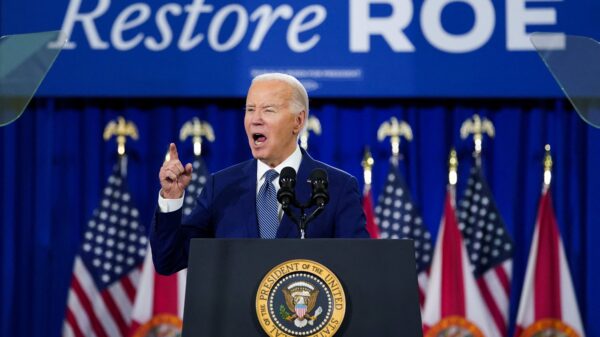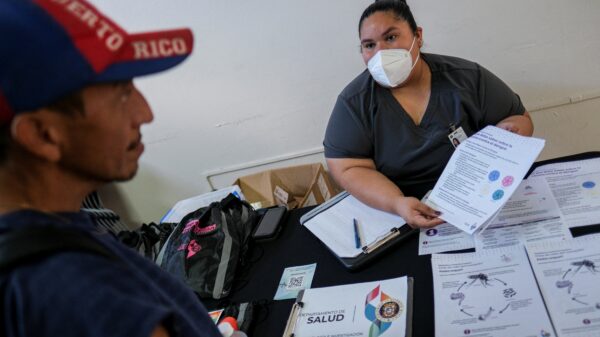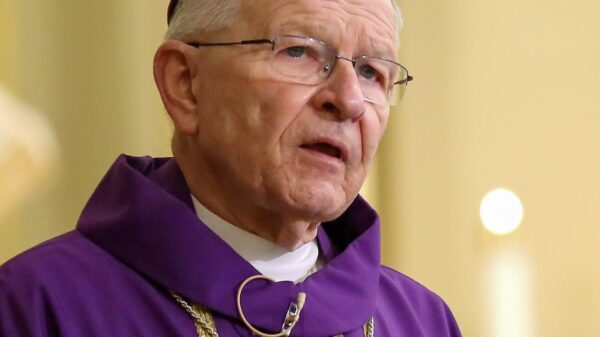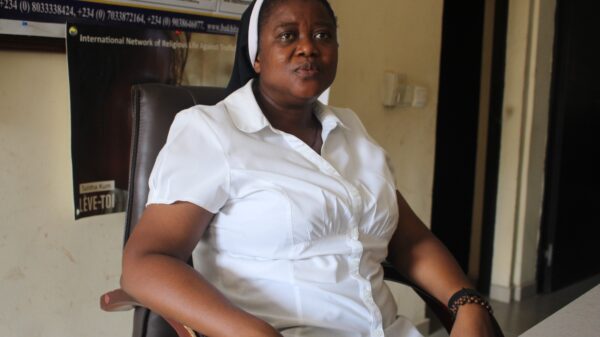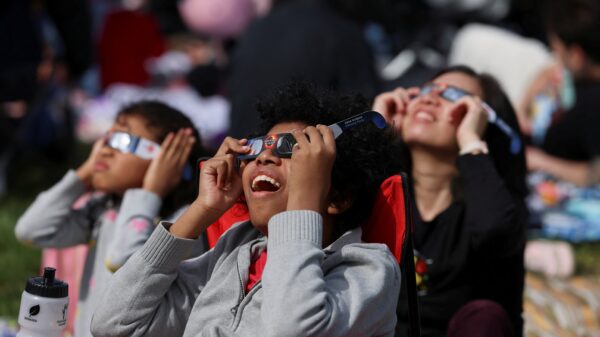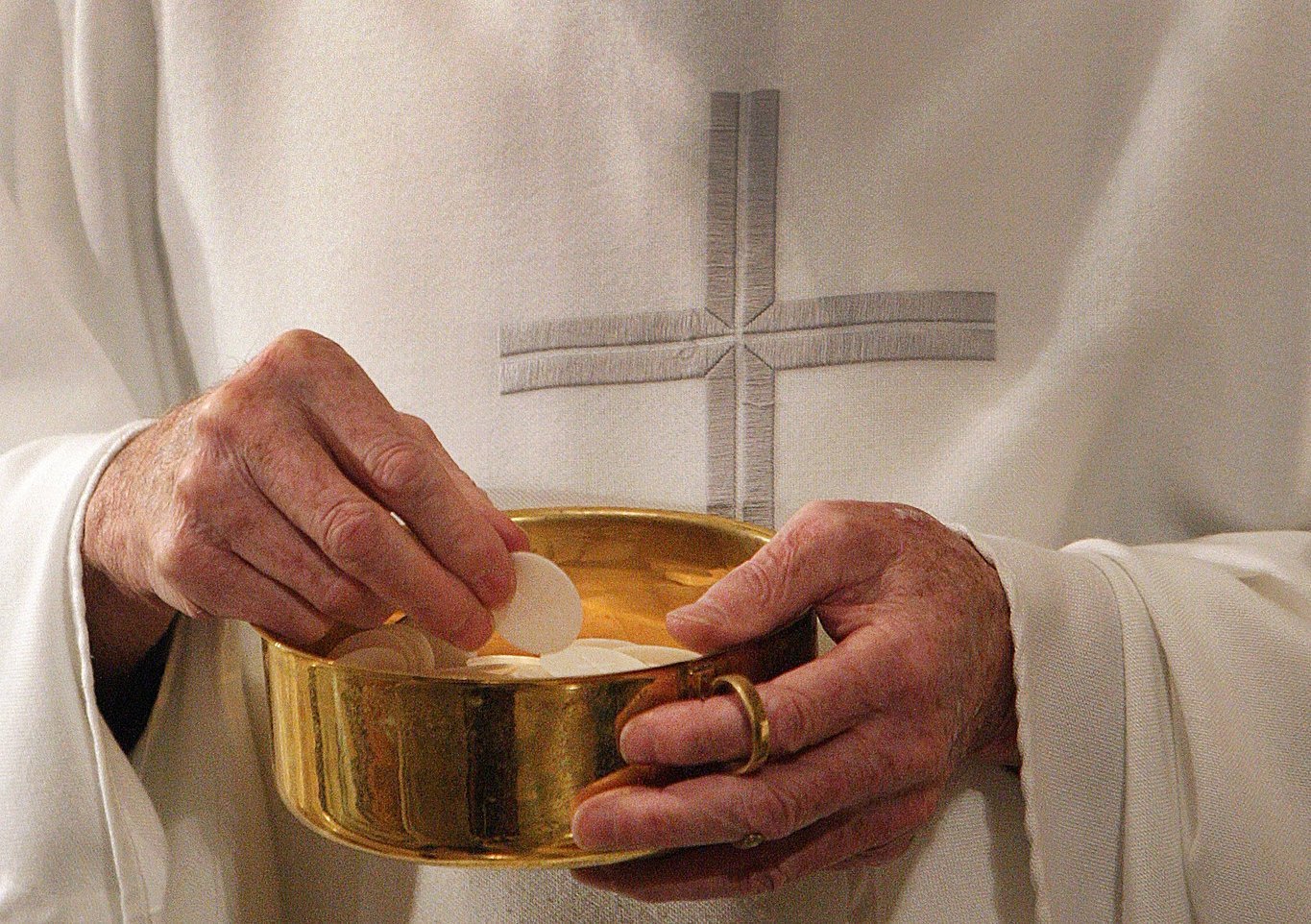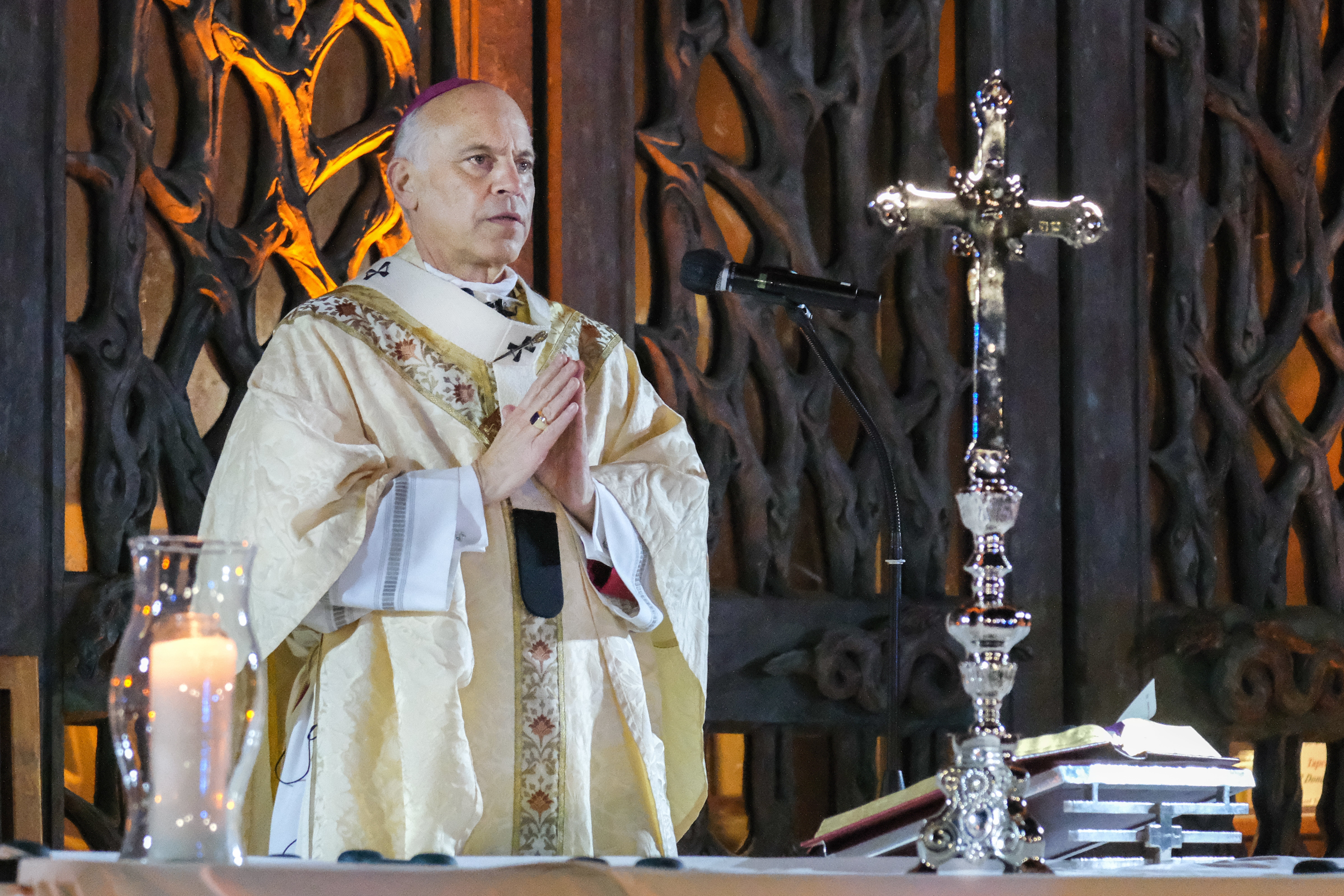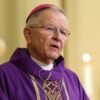(OSV News) — Legal action filed against a New York state diocese shows the Catholic Church in the U.S. has significant work to do in safeguarding adults from clerical abuse.
The Diocese of Rochester, New York, announced on its news website, the Catholic Courier, that it had been served Nov. 16 with a civil lawsuit involving an adult and Father Matthew Jones.
The action alleges that the 41-year-old Father Jones, then pastor of All Saints Parish in Corning, New York had sexually abused male parishioner in his 20s who had sought pastoral counseling. According to the filing, the priest had plied the young man with alcohol and dinners (paid for with a diocesan credit card) and engaged in “non-consensual sexual contact” with him on numerous occasions over a six-month period. In some instances, the young man was too intoxicated to resist the priest’s advances, according to the suit.
The diocese placed Father Jones on a leave of absence Sept. 19, 2022, saying in a statement posted on its news website, the Catholic Courier, that Father Jones has not functioned as a priest since then and has resigned his pastorate.
The case against Father Jones was brought under New York’s Adult Victims Act, which provided a one-year lookback window for claims by victims abused over the age of 18, regardless of when the abuse occurred. The act — which led to more than 3,000 claims against a variety of individuals and entities, from celebrities to state prisons — expired Nov. 24.
While the Catholic Church in the U.S. “has made significant strides in protecting children from sexual abuse … we have not yet made a similar commitment to protecting adults,” said Sara Larson, executive director of the independent nonprofit Awake Milwaukee, which works to raise awareness of and heal sexual abuse in both the Archdiocese of Milwaukee and the Catholic Church as a whole.
“As an organization, we would like to see an internal structure be built (that is) similar to that of the child protection services that so many dioceses have adopted,” Michael McDonnell, interim executive director of SNAP (Survivors Network of Those Abused by Priests), told OSV News.
In March, Pope Francis made permanent his motu proprio “Vos Estis Lux Mundi” (“You are the light of the world”), expanding the categories of victims covered by the regulations to include vulnerable adults.
But experts told OSV News the term “vulnerable adult” is itself problematic for a number of reasons.
“The term ‘vulnerable adult’ presupposes the existence of invincible adults,” Lea Karen Kivi, author of “Abuse in the Church: Healing the Body of Christ,” told OSV News. “No matter who you are, you are at risk.”
Kivi also said that “some use the term ‘vulnerable adult’ as a form of victim blaming.”
Larson agreed, saying her work with adult survivors has shown “many (survivors) find this language extremely demeaning.”
McDonnell said he prefers the “more neutral” term “individuals who present challenge,” which could be “a challenge in their life, a challenge in their workplace,” and the like.
“It may be a grieving mother, it may be someone who’s going through a separation or a divorce,” he said. “I think that ‘vulnerability’ puts so much of a stigma on it.”
Larson echoed that approach, saying that “instead of trying to determine which adults fit this label, we should recognize the reality that all people can be vulnerable to abuse during challenging times in their life or in specific situations where there is a distinct power differential.”
Focusing on “vulnerable adults” also obscures the role of abusers, said Kivi.
“I think the use of the term ‘vulnerable adult’ wrongly focuses on characteristics of victims instead of the characteristics of offending clergy,” she said. “Instead, I think canon law should adopt the terms ‘consenting’ versus ‘non-consenting adults’ when it comes to any sexual contact between priests and adults.”
Kivi has also developed a template of a website statement that can be used by caregiving organizations to describe their safe environment policy for adults. The template lists a number of red flags indicating a member of the clergy or counselor has violated a care-seeker’s boundaries — for example, by confiding in the care-seeker, misusing Scripture or other aspects of religion to groom a victim, meeting outside of a normal counseling or clinical setting, and engaging in sexual touch or activity.
Lay people can play a pivotal role in developing more robust and specific protocols to protect adults from abuse in the Catholic Church, especially “coming off the heels of the Synod (on Synodality),” which called for greater lay involvement in the life of the church, said McDonnell.
He also recommended diocesan policies that pointed adults to licensed counselors for treatment that would be protected under privacy laws and regulated by professional medical and clinical boards.
During their fall 2023 plenary assembly, a number of U.S. bishops stressed the need for an increase in the number of Catholic mental health professionals qualified to address mental illness holistically, through psychiatric, psychological and spiritual treatment modalities.
“As pastors, we are not mental health professionals, but we can be mental health ministers,” said Metropolitan Archbishop Borys A. Gudziak of the Ukrainian Catholic Archeparchy of Philadelphia in his address to the assembly. Archbishop Gudziak, who chairs the USCCB’s Committee on Domestic Justice and Human Development, and Bishop Robert E. Barron of Winona-Rochester, Minn., chairman of the USCCB’s Committee on Laity, Marriage, Family Life and Youth, are leading the National Catholic Mental Health Campaign, launched by the U.S. bishops in October.
McDonnell suggested that adults seeking pastoral counseling “find a trusted figure that you would allow to sit in on any type of a session” to prevent abuse.
Despite the Catholic Church’s long road ahead in protecting adults from abuse, Larson said she remains hopeful.
“I do see awareness building in recent years, and there are certainly church leaders who are trying to face this reality and formulate a just and compassionate response,” she said. “As more and more cases of adult abuse come to light, I have hope that we are finally reaching the point when we will come together as the Body of Christ to protect all members of the body.”
– – –
Gina Christian is a national reporter for OSV News. Follow her on X, formerly Twitter, at @GinaJesseReina.


